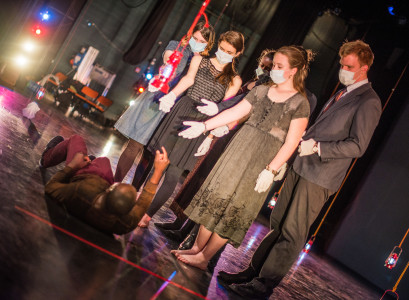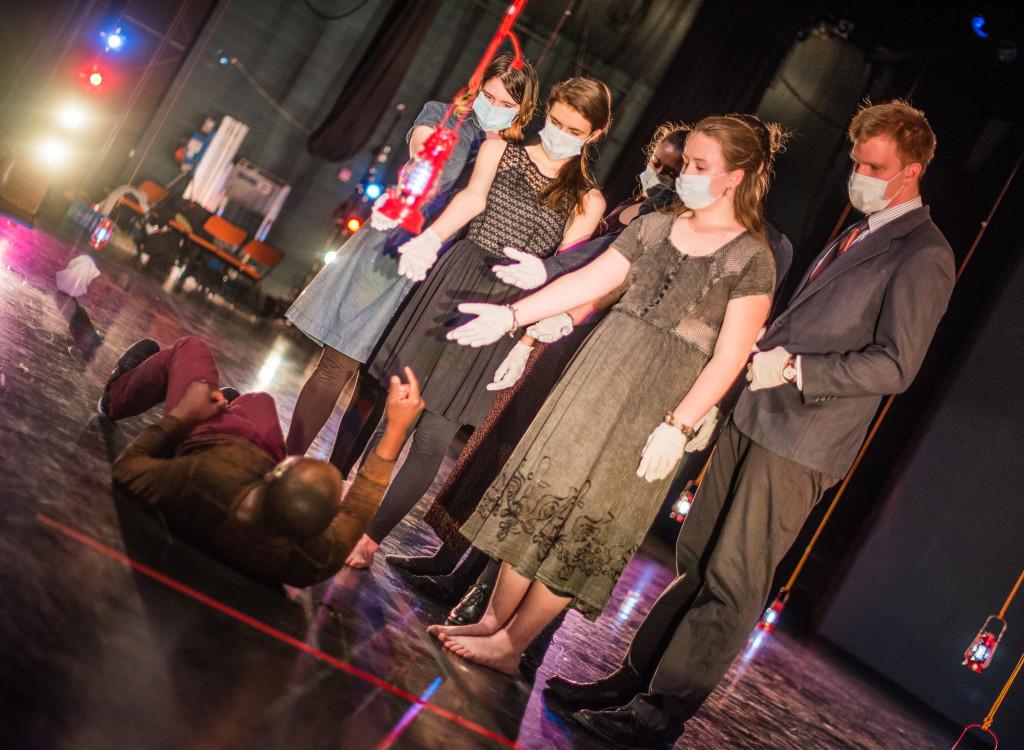
Tonight in Roberts Theatre, the Grinnell community will be presented with a unique performance experience in the form of contemporary dancer Olivier Tarpaga’s eponymous composition “Not Because You Are African.” Hailing from Burkina Faso, Tarpaga has graced a variety of stages the world over, all the while maintaining faculty positions in the dance departments of Ohio State University, Kenyon College and University of the Arts in Philadelphia.
His latest composition seeks to transcend the lens of performance art as he tackles notions of neocolonialism, xenophobia and cultural relevance that have plagued his native Burkina Faso and the greater non-Western world at large, as colonial ties and ignorance continue to inform interracial relations between Europe and Africa.

When asked what specific instances have helped him to construct the narrative and emotional content of “Not Because You Are African,” Tarpaga recounted a variety of experiences that came to inform him as an artist, including the incidents that inspired the irony-soaked title of his piece.
“Both bad and good things kept happening to me as I travelled, especially while still on visa before I got my passport. I would be with my family, who were all American citizens at the time, and the security officer would pull me aside and question me for a long time, check my eyes for disease, all because I was African,” Tarpaga said. “Even after I received my citizenship, another security officer accused me of having a fake, saying my forehead was too big and that I had to be questioned, causing me to miss a flight in the process.”
Tarpaga shared another personal account that would turn into a segment of this performance known as “Fat Goat, Skinny Goat.” Two French men patronizingly asked him, a fluent French speaker and university professor, if he knew what tomatoes and onions were, adding that “goats [from France] were fat and strong because they ate green grass and that goats from Africa were skinny because of the yellow grass there.” Tarpaga transformed the insulting anecdote into a piece that comments on the wealth disparity that exists between France and Burkina Faso—a former colonizing power and its colony—to this day. Ultimately, Tarpaga believes in the power of art to express social issues.
“Artists have a responsibility, a power to the people of their society,” Tarpaga said. “[Dance provides] a voice for those without a voice.”



















































